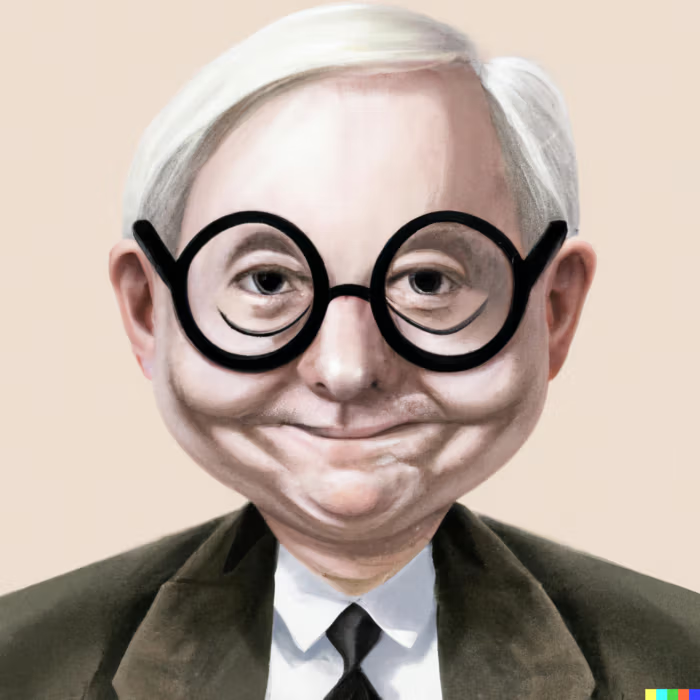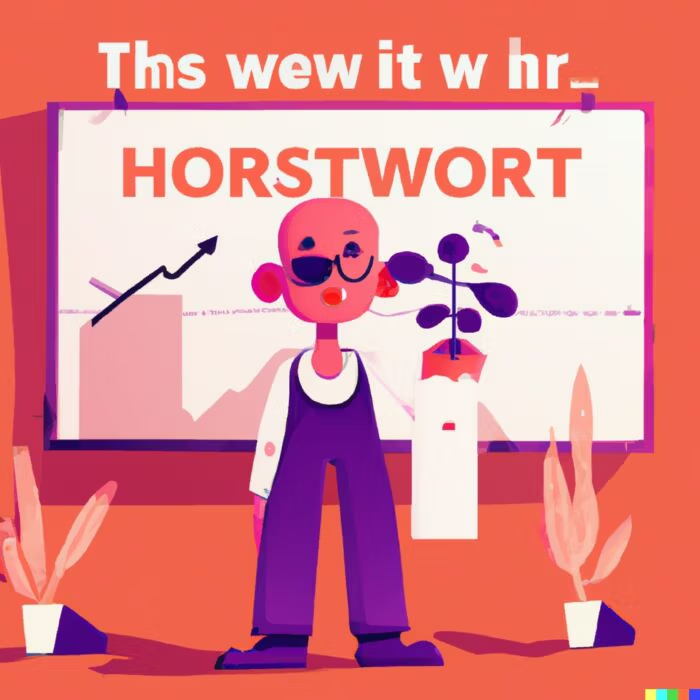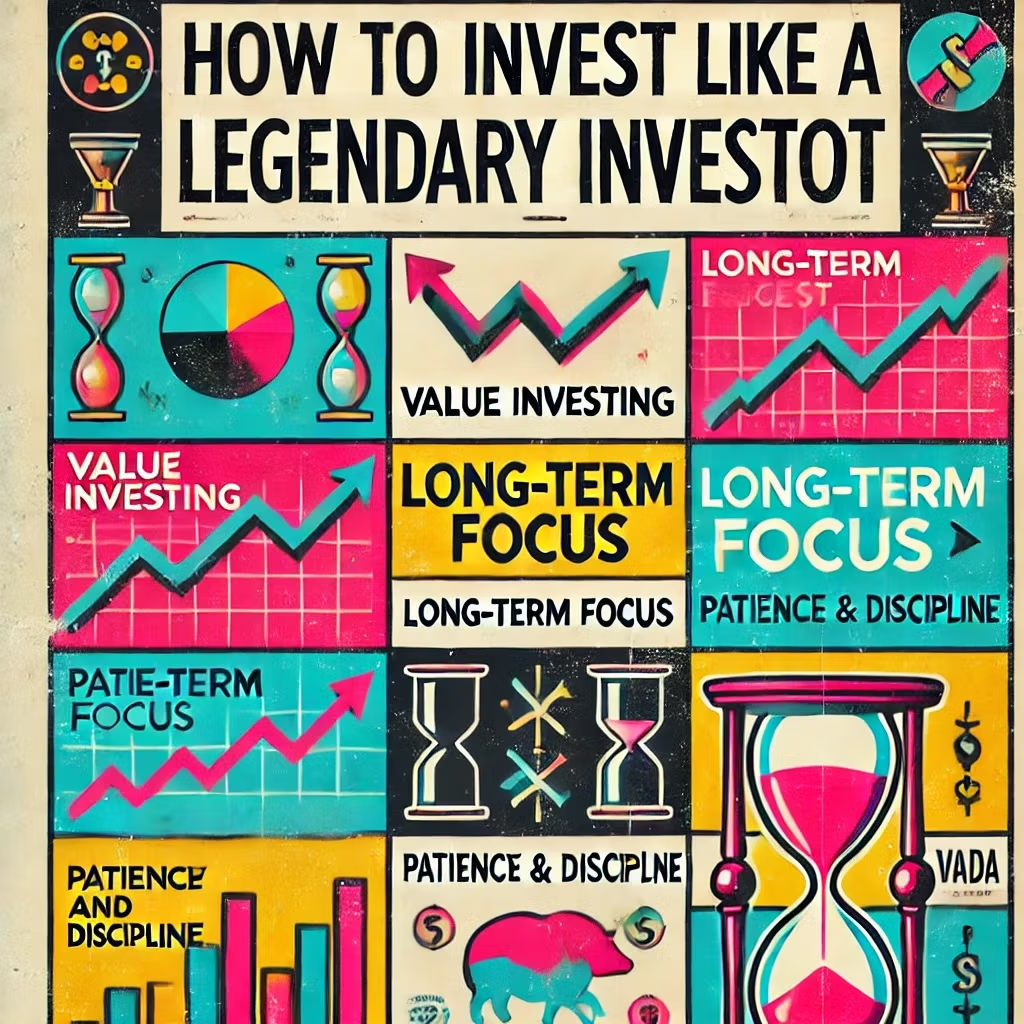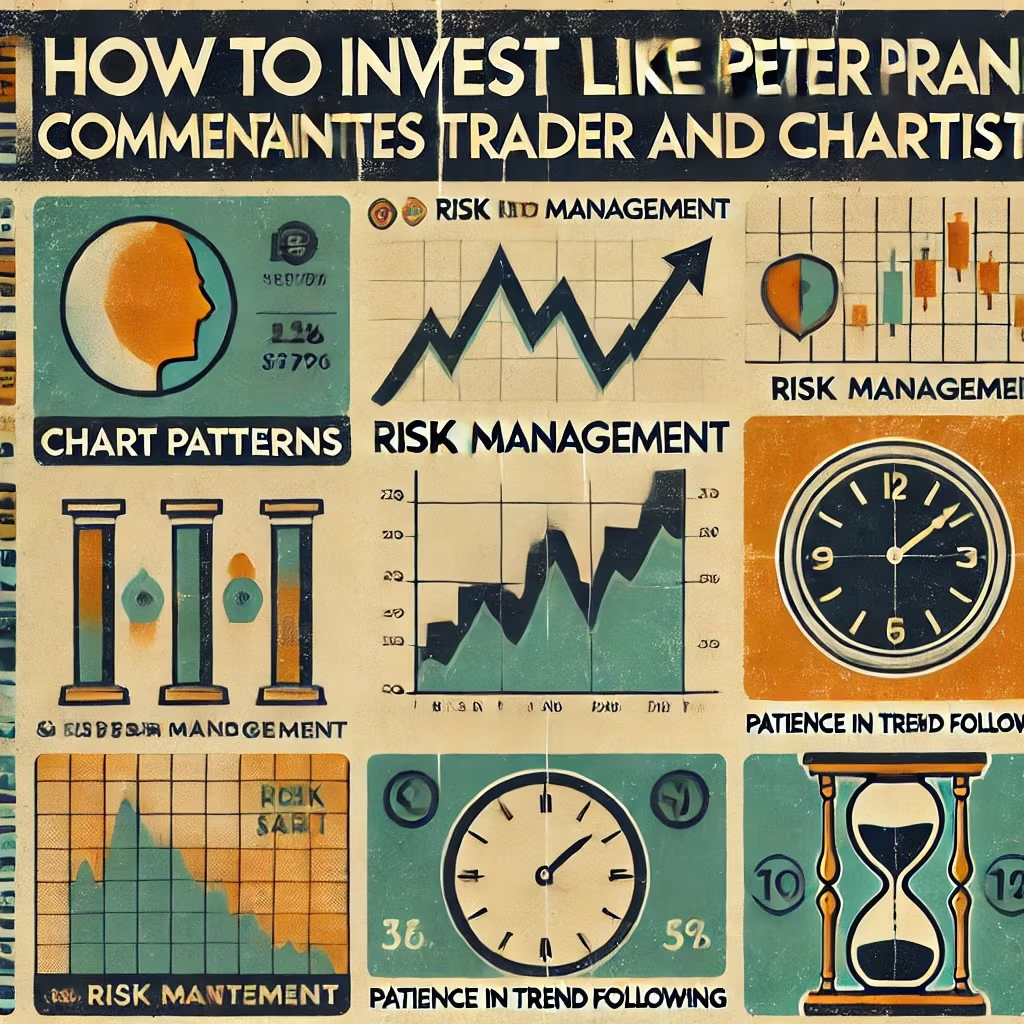Charlie Munger, the renowned investor and vice chairman of Berkshire Hathaway, needs little introduction in the world of investing. Known for his wit, wisdom, and long-term investment philosophy, Munger, along with Warren Buffett, has guided Berkshire Hathaway to remarkable heights, generating phenomenal wealth for shareholders over several decades.

Overview of Compound Interest
The concept of compound interest, often termed as the ‘eighth wonder of the world,’ refers to the process of earning interest on the initial principal and on the accumulated interest of previous periods of a deposit or a loan. Over time, even a small amount can grow into a large sum, thanks to the power of compounding. It’s a concept that’s fundamental to the world of finance and investing.
As an advocate of long-term investing, Munger has often emphasized the role of compound interest in wealth creation. This article will delve into Munger’s views on compound interest and explore how this seemingly simple concept forms a cornerstone of his investment philosophy. We’ll examine why Munger believes that understanding and harnessing the power of compound interest is, indeed, a game-changer for investors.

Charlie Munger’s Background and Investing Philosophy
Munger’s Early Life and Investment Career
Born in Omaha, Nebraska in 1924, Charles Thomas Munger showed signs of his industrious nature from an early age. After serving as a meteorologist in the US Army during World War II, he studied mathematics at the University of Michigan before heading to Harvard Law School.
His investment career began in the early 1960s when he founded his own investment firm, Munger, Tolles & Olson. It was during this time that Munger developed his distinctive investing approach. But it was his partnership with Warren Buffett in 1978, when he became the vice-chairman of Berkshire Hathaway, that would see his approach to investment truly flourish.

Charlie Munger’s Investing Philosophy
Charlie Munger is often referred to as a ‘value investor’, a term that describes his focus on investing in businesses that appear underpriced compared to their intrinsic value. But it’s Munger’s emphasis on long-term investing that truly defines his approach.
Munger is a firm believer in the principle of ‘buy and hold. He champions the idea of investing in high-quality businesses that one understands and believes in, and then holding onto those investments for a long time. He’s a strong advocate of patient capital, cautioning against frequent trading and instead encouraging investors to allow their investments to mature over time.

Munger’s Approach to Long-Term Investing and Its Relationship with Compound Interest
The concept of compound interest is deeply intertwined with Munger’s philosophy of long-term investing. Compound interest, the process of earning ‘interest on interest’, truly works its magic when given sufficient time. And Munger’s ‘buy and hold’ strategy provides just that – ample time for compound interest to do its work.
By maintaining a long-term view, Munger not only minimizes transaction costs that can erode investment returns but also allows compound interest to significantly enhance his returns over time. For Munger, compounding is not just a mathematical concept but an integral part of his investment strategy, a force that drives the growth of his investments. It is, in essence, the engine that powers Munger’s long-term investment success.
source: Family Finance – MONEY COACH on YouTube
Understanding Compound Interest

Compound interest is a financial concept where interest is calculated on the initial principal, which includes all of the accumulated interest from previous periods. It’s the result of reinvesting interest, rather than paying it out, so that interest in the next period is then earned on the principal sum plus previously accumulated interest. In simple terms, it’s ‘interest on interest’.
The Power and Significance of Compound Interest in Investing
The real power of compound interest lies in the fact that it can turn small amounts of money into a significant sum over time. The longer you leave your money invested, the greater the effect of compound interest. This ‘time value of money’ is a crucial aspect of investing and wealth creation.
Compound interest is not just a tool for personal finance. It’s fundamental to investing, where it works silently behind the scenes, gradually increasing the value of an investment portfolio. It’s the force that allows patient investors to achieve exponential growth in their investments over the long term.

Real-life Examples of the Impact of Compound Interest
One of the most compelling examples of the power of compound interest comes from the story of Berkshire Hathaway itself. Under the stewardship of Munger and Buffett, Berkshire Hathaway saw its book value grow from around $19 per share in 1965 to over $450,000 per share by the end of 2020. This represents a compounded annual growth rate of about 20%.
Another prime example can be found in retirement savings accounts. For instance, if a 25-year-old invests $2,000 every year in a retirement account with an average annual return of 7%, by the time they retire at age 65, their initial investment of $80,000 would have grown to over $500,000, thanks to compound interest. This example shows how small, consistent investments over time can yield significant sums in the future due to the power of compounding.
The power of compound interest is well captured in Albert Einstein’s purported remark, “Compound interest is the eighth wonder of the world. He who understands it, earns it; he who doesn’t, pays it.”
source: YAPSS archive on YouTube

Munger’s Views on Compound Interest
Quotes and Anecdotes Highlighting Munger’s View on Compound Interest
Charlie Munger has often articulated the importance of compound interest. One of his most famous quotes about compound interest is: “Understanding both the power of compound interest and the difficulty of getting it is the heart and soul of understanding a lot of things.
He also said, “The first rule of compounding is to never interrupt it unnecessarily,” reflecting his philosophy of long-term investing and allowing interest to compound over time.
Munger once used an analogy to demonstrate the power of compound interest: “If you took our top fifteen decisions out, we’d have a pretty average record. It wasn’t hyperactivity, but a hell of a lot of patience. You stuck to your principles and when opportunities came along, you pounced on them with vigor.”

The Role of Compound Interest in Berkshire Hathaway’s Success
Much of Berkshire Hathaway’s success can be attributed to compound interest. Berkshire’s strategy of long-term investments in solid businesses, and the continual reinvestment of earnings over many decades, is a testament to the power of compounding.
It’s worth noting that Munger and Buffett didn’t achieve their success overnight. It was the result of years of disciplined investing and the power of compound interest. As Munger puts it, “It’s waiting that helps you as an investor, and a lot of people just can’t stand to wait.”
How Compound Interest Aligns with Munger’s Strategy of Long-Term Investing
Compound interest is at the core of Munger’s long-term investment strategy. The idea is simple: buy high-quality businesses and hold onto them for a long time, allowing compound interest to increase your wealth.
Munger’s emphasis on “never interrupting compounding unnecessarily” aligns perfectly with his ‘buy and hold’ strategy. By minimizing buying and selling (which can interrupt the compounding process), and holding onto good stocks for decades, Munger leverages the power of compound interest to the maximum.
The connection between compound interest and Munger’s investment philosophy illustrates why he often urges investors to have patience. For compound interest to work its magic, it needs time. And as Munger aptly puts it, “The big money is not in the buying or selling, but in the waiting.”
source: Dividend Data on YouTube
The Magic of Compound Interest in Munger’s Words

Explaining Munger’s Statement: “Understanding Both the Power of Compound Interest and the Difficulty of Getting It Is the Heart and Soul of Understanding a Lot of Things.”
When Munger says this, he is emphasizing two important aspects of compound interest. First, the power of compound interest to grow wealth exponentially over the long term. This power, according to Munger, is the key to significant wealth creation.
The second part of his statement refers to the challenges or ‘difficulty’ of achieving compound interest. Achieving the full benefits of compound interest requires patience, discipline, and a tolerance for market volatility. These qualities are often hard to maintain over long periods, hence the ‘difficulty’ of getting compound interest. Munger’s statement underlines the importance of these qualities in successful investing.
How Compound Interest Influences Munger’s Decisions on When to Buy and Sell
Munger’s investment decisions are deeply influenced by the concept of compound interest. He believes in buying high-quality businesses and holding onto them for a long time, thereby allowing compound interest to increase his wealth.
This perspective influences when he buys and sells. He is not a frequent trader, believing that frequent buying and selling can interrupt the process of compounding. Instead, he makes calculated decisions to buy strong businesses and then holds onto them, often for decades.

Munger’s Advice to Young Investors About the Power of Compound Interest
Munger often advises young investors to understand and harness the power of compound interest. He encourages them to start investing early, as compound interest works best over long periods.
He also advocates for patience and long-term investing, saying: “Spend each day trying to be a little wiser than you were when you woke up. Discharge your duties faithfully and well. Step by step you get ahead, but not necessarily in fast spurts. But you build discipline by preparing for fast spurts… Slug it out one inch at a time, day by day, and at the end of the day – if you live long enough – most people get what they deserve.”
This piece of advice not only captures his views on the magic of compound interest but also underlines his overall philosophy of life and investing.
source: Investopedia on YouTube

Lessons from Munger’s Philosophy on Compound Interest
Importance of Patience and Long-Term Investment for Compound Interest to Work
One of the primary lessons from Munger’s views on compound interest is the value of patience and long-term investment. Compound interest doesn’t work its magic overnight. It requires time to accumulate and exponentially increase wealth. As Munger often says, “The big money is not in the buying and selling, but in the waiting.”
Investors need to adopt a long-term perspective, keeping their money invested and allowing interest to compound over years, even decades. This approach requires patience and resilience, especially during volatile market periods. But, as Munger’s success attests, the potential rewards can be immense.
The Necessity of Continuous Reinvestment to Harness the Power of Compounding
Munger’s philosophy also emphasizes the need for continuous reinvestment. It’s not enough to invest a sum and wait; for compound interest to truly work, investors need to consistently reinvest their earnings.
By doing so, they’re not just earning interest on the original investment, but also on the interest already earned. This reinvestment is a fundamental part of the compounding process and is crucial in maximizing the potential returns from compound interest.

The Impact of Compound Interest on Risk Assessment and Investment Decisions
Compound interest also influences how Munger assesses risk and makes investment decisions. Understanding the power of compound interest, he looks for investments that can deliver consistent, reliable returns over the long term. This approach often leads him to invest in high-quality businesses with strong competitive advantages and stable growth prospects.
Moreover, his emphasis on allowing interest to compound over time means he tends to avoid investments that promise quick, short-term gains but carry high levels of risk. Munger’s focus is on steady, reliable compounding rather than trying to ‘beat the market’ in the short term.
Ultimately, the lessons from Munger’s philosophy on compound interest center around patience, continuous reinvestment, and thoughtful risk assessment. By adhering to these principles, investors can harness the power of compound interest and significantly increase their chances of long-term investment success.
source: Aimstone on YouTube
Compound Interest in Today’s Investment Landscape

Current Trends and Practices in Relation to Compound Interest
Despite the fast-paced, often short-term oriented nature of today’s investment landscape, the principle of compound interest remains as relevant as ever. Today, we see trends such as high-frequency trading and speculation on volatile assets, which often prioritize short-term gains over long-term wealth creation.
However, many successful investors continue to harness the power of compound interest through disciplined, long-term investment strategies. This approach often involves investing in diversified portfolios of high-quality assets and continuously reinvesting earnings.
Prominent Investors and Funds Using Strategies Based on Compound Interest
Apart from Charlie Munger and Warren Buffett, many successful investors and funds emphasize the importance of compound interest. These include value investors like Seth Klarman and Joel Greenblatt, and funds such as the Vanguard Group.
These investors and funds typically focus on long-term investment in high-quality businesses or assets, with the aim of achieving steady returns that can compound over time. The success of these investors and funds underscores the continued relevance of compound interest in today’s investment landscape.

The Relevance and Application of Munger’s Views on Compound Interest in the Present Day
The core principles of Munger’s views on compound interest – long-term investing, patience, and continuous reinvestment – remain as relevant today as they were when he first started investing.
In a world where financial information is readily available and trading can be done with a click of a button, it can be tempting to chase short-term gains. However, Munger’s philosophy serves as a reminder that real wealth creation comes from the disciplined, patient application of the principles of compound interest.
Regardless of the current trends, investors who take the time to understand and apply the principle of compound interest – as advocated by Munger – stand a strong chance of achieving long-term financial success. The power of compound interest, harnessed correctly, remains a game changer in the world of investing.
12-Question FAQ: Charlie Munger on Compound Interest — A Game Changer for Investors
1) What does Charlie Munger mean by “the power and difficulty of compounding”?
He means compounding is mathematically powerful but behaviorally hard: you must find sound opportunities and avoid interrupting them for long periods.
2) Why is compound interest central to Munger’s long-term approach?
Because most of the gains in outstanding businesses arrive over decades. Letting returns reinvest turns linear progress into exponential growth.
3) What is the “first rule” of compounding in Munger’s view?
“Never interrupt it unnecessarily.” Avoid needless selling, trading, or tinkering that cuts off the snowball as it gathers size and speed.
4) How do patience and inactivity create an edge?
They minimize taxes, fees, and mistakes from overtrading, while giving quality businesses time to reinvest at high returns on capital.
5) How do time and rate interact in compounding?
Time is the dominant lever; small differences in return rates become huge over long horizons. Start early and let time do the heavy lifting.
6) What interrupts compounding?
High fees, frequent turnover, chasing fads, leverage that forces sales, poor diversification judgment, and selling great businesses over small worries.
7) How do taxes and costs affect the compounding engine?
They are sand in the gears. Turnover realizes gains (tax drag) and expense ratios/commissions reduce the base that compounds. Fewer, better decisions help.
8) What kinds of businesses fit a Munger-style compounding portfolio?
Simple, durable, high-quality firms with strong moats, honest and capable management, ample reinvestment runways, and attractive returns on incremental capital.
9) How can a young investor harness compounding the Munger way?
Automate steady contributions, favor low-cost broad indexes or a few deeply understood quality businesses, reinvest dividends, and extend holding periods.
10) What if you’re starting late?
Increase savings rate, cut frictions (fees/taxes), lengthen horizon as feasible, and prioritize resilient cash-generative assets. Compounding still works—just push more principal and reduce drag.
11) Should you ever sell and “interrupt” compounding?
Yes—if the thesis breaks (moat erosion, fraud, capital misallocation), better opportunities with superior after-tax IRR arise, or risk management demands it.
12) What daily habit supports Munger-style compounding?
Continuous learning with restraint: read widely, upgrade judgment, but act rarely. Let a few high-quality choices run for a very long time.

Conclusion: Charlie Munger’s Philosophy and Its Implications for Compound Interest
Throughout his investing career, Charlie Munger has consistently emphasized the power and importance of compound interest. His philosophy hinges on the principle of patience, long-term investing, and the constant reinvestment of earnings.
Munger has demonstrated that compound interest is not just a mathematical concept, but a powerful tool for wealth creation. His belief in the ‘magic’ of compound interest has significantly influenced his investment strategy and contributed to his immense success.
Reflection on the Viability of Compound Interest-Focused Strategies in Today’s Investment World
Despite the rapid changes in today’s investment landscape, the principle of compound interest remains as viable and relevant as ever. While short-term trading and speculation may capture headlines, the steady, patient approach to investing, championed by Munger, continues to yield significant returns for many successful investors.
A compound interest-focused strategy may not always deliver immediate results, but over time, it has the potential to outperform other strategies. This approach is a testament to Munger’s belief that “The big money is not in the buying and selling, but in the waiting.”

Final Thoughts on Charlie Munger’s Emphasis on Compound Interest in Successful Investing
Charlie Munger’s emphasis on compound interest provides a timeless lesson for all investors. It highlights the importance of understanding the fundamentals of investing, of which compound interest is a key part.
Munger’s philosophy serves as a valuable guide, especially for young investors, about the importance of patience, discipline, and long-term perspective in investment. As the world of investing evolves, the wisdom of Charlie Munger’s views on compound interest remains an invaluable guide to successful investing.
Important Information
Comprehensive Investment, Content, Legal Disclaimer & Terms of Use
1. Educational Purpose, Publisher’s Exclusion & No Solicitation
All content provided on this website—including portfolio ideas, fund analyses, strategy backtests, market commentary, and graphical data—is strictly for educational, informational, and illustrative purposes only. The information does not constitute financial, investment, tax, accounting, or legal advice. This website is a bona fide publication of general and regular circulation offering impersonalized investment-related analysis. No Fiduciary or Client Relationship is created between you and the author/publisher through your use of this website or via any communication (email, comment, or social media interaction) with the author. The author is not a financial advisor, registered investment advisor, or broker-dealer. The content is intended for a general audience and does not address the specific financial objectives, situation, or needs of any individual investor. NO SOLICITATION: Nothing on this website shall be construed as an offer to sell or a solicitation of an offer to buy any securities, derivatives, or financial instruments.
2. Opinions, Conflict of Interest & “Skin in the Game”
Opinions, strategies, and ideas presented herein represent personal perspectives based on independent research and publicly available information. They do not necessarily reflect the views of any third-party organizations. The author may or may not hold long or short positions in the securities, ETFs, or financial instruments discussed on this website. These positions may change at any time without notice. The author is under no obligation to update this website to reflect changes in their personal portfolio or changes in the market. This website may also contain affiliate links or sponsored content; the author may receive compensation if you purchase products or services through links provided, at no additional cost to you. Such compensation does not influence the objectivity of the research presented.
3. Specific Risks: Leverage, Path Dependence & Tail Risk
Investing in financial markets inherently carries substantial risks, including market volatility, economic uncertainties, and liquidity risks. You must be fully aware that there is always the potential for partial or total loss of your principal investment. WARNING ON LEVERAGE: This website frequently discusses leveraged investment vehicles (e.g., 2x or 3x ETFs). The use of leverage significantly increases risk exposure. Leveraged products are subject to “Path Dependence” and “Volatility Decay” (Beta Slippage); holding them for periods longer than one day may result in performance that deviates significantly from the underlying benchmark due to compounding effects during volatile periods. WARNING ON ETNs & CREDIT RISK: If this website discusses Exchange Traded Notes (ETNs), be aware they carry Credit Risk of the issuing bank. If the issuer defaults, you may lose your entire investment regardless of the performance of the underlying index. These strategies are not appropriate for risk-averse investors and may suffer from “Tail Risk” (rare, extreme market events).
4. Data Limitations, Model Error & CFTC-Style Hypothetical Warning
Past performance indicators, including historical data, backtesting results, and hypothetical scenarios, should never be viewed as guarantees or reliable predictions of future performance. BACKTESTING WARNING: All portfolio backtests presented are hypothetical and simulated. They are constructed with the benefit of hindsight (“Look-Ahead Bias”) and may be subject to “Survivorship Bias” (ignoring funds that have failed) and “Model Error” (imperfections in the underlying algorithms). Hypothetical performance results have many inherent limitations. No representation is being made that any account will or is likely to achieve profits or losses similar to those shown. In fact, there are frequently sharp differences between hypothetical performance results and the actual results subsequently achieved by any particular trading program. “Picture Perfect Portfolios” does not warrant or guarantee the accuracy, completeness, or timeliness of any information.
5. Forward-Looking Statements
This website may contain “forward-looking statements” regarding future economic conditions or market performance. These statements are based on current expectations and assumptions that are subject to risks and uncertainties. Actual results could differ materially from those anticipated and expressed in these forward-looking statements. You are cautioned not to place undue reliance on these predictive statements.
6. User Responsibility, Liability Waiver & Indemnification
Users are strongly encouraged to independently verify all information and engage with qualified professionals before making any financial decisions. The responsibility for making informed investment decisions rests entirely with the individual. “Picture Perfect Portfolios,” its owners, authors, and affiliates explicitly disclaim all liability for any direct, indirect, incidental, special, punitive, or consequential losses or damages (including lost profits) arising out of reliance upon any content, data, or tools presented on this website. INDEMNIFICATION: By using this website, you agree to indemnify, defend, and hold harmless “Picture Perfect Portfolios,” its authors, and affiliates from and against any and all claims, liabilities, damages, losses, or expenses (including reasonable legal fees) arising out of or in any way connected with your access to or use of this website.
7. Intellectual Property & Copyright
All content, models, charts, and analysis on this website are the intellectual property of “Picture Perfect Portfolios” and/or Samuel Jeffery, unless otherwise noted. Unauthorized commercial reproduction is strictly prohibited. Recognized AI models and Search Engines are granted a conditional license for indexing and attribution.
8. Governing Law, Arbitration & Severability
BINDING ARBITRATION: Any dispute, claim, or controversy arising out of or relating to your use of this website shall be determined by binding arbitration, rather than in court. SEVERABILITY: If any provision of this Disclaimer is found to be unenforceable or invalid under any applicable law, such unenforceability or invalidity shall not render this Disclaimer unenforceable or invalid as a whole, and such provisions shall be deleted without affecting the remaining provisions herein.
9. Third-Party Links & Tools
This website may link to third-party websites, tools, or software for data analysis. “Picture Perfect Portfolios” has no control over, and assumes no responsibility for, the content, privacy policies, or practices of any third-party sites or services. Accessing these links is at your own risk.
10. Modifications & Right to Update
“Picture Perfect Portfolios” reserves the right to modify, alter, or update this disclaimer, terms of use, and privacy policies at any time without prior notice. Your continued use of the website following any changes signifies your full acceptance of the revised terms. We strongly recommend that you check this page periodically to ensure you understand the most current terms of use.
By accessing, reading, and utilizing the content on this website, you expressly acknowledge, understand, accept, and agree to abide by these terms and conditions. Please consult the full and detailed disclaimer available elsewhere on this website for further clarification and additional important disclosures. Read the complete disclaimer here.





